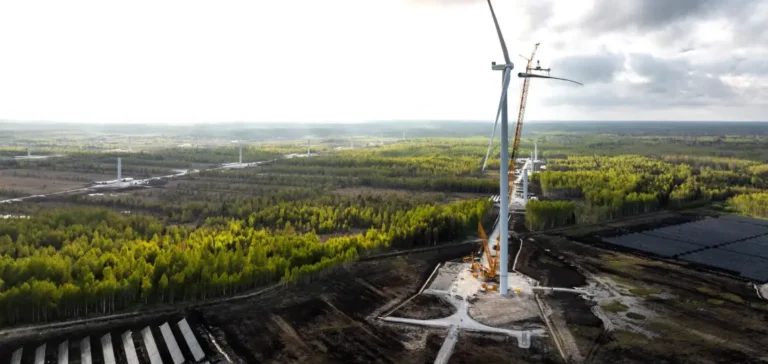The Energy Transitions Commission (ETC) has released a new briefing note on the implications of international trade in the energy transition, highlighting the risks associated with overly concentrated supply chains and the perception of certain carbon adjustment mechanisms as protectionist. The organisation sets out a series of principles intended to guide national policy without compromising competitiveness or cost efficiency.
Local supply chains in policymakers’ sights
According to the ETC, China’s current dominance in clean energy technologies is the result of a combination of strategic decisions, targeted investment, and a strong innovation ecosystem. In response, several countries are turning to supply chain nearshoring — a strategy that, if poorly designed, could undermine the economic viability of the energy transition.
The ETC recommends six principles for guiding industrial policy: pursuing diversification over full self-sufficiency, distinguishing between economic and national security risks, tailoring policy to sectors where domestic production can be cost-competitive, basing any tariffs on factual subsidy assessments in line with World Trade Organization (WTO) rules, focusing on job creation and local value rather than ownership, and working with China to channel climate finance towards low-income countries.
Carbon pricing: an unevenly applied tool
In “hard-to-abate” sectors such as steel and shipping, low-carbon technologies remain costlier, justifying the need for carbon pricing. To date, 53 countries apply some form of carbon pricing, covering more than 20% of global emissions. However, only the European Union sets carbon prices considered effective, the report notes.
The ETC supports the EU’s implementation of a Carbon Border Adjustment Mechanism (CBAM) and calls for broader international harmonisation through the WTO. To reduce carbon leakage, the organisation proposes providing technical assistance to developing nations and allocating CBAM revenues to support climate finance in low-income countries.
International cooperation and incentive mechanisms
The International Maritime Organization has recently endorsed a scheme aligned with these goals for the shipping sector, reflecting growing interest in coordination. However, in the absence of common standards on carbon intensity or unified fiscal tools, the risk of fragmented rules remains high.
The ETC stresses the need for coherent policies to support the global industrial expansion of clean technologies. ETC Vice Chair Faustine Delasalle stated that tariff measures, supply-side incentives, and demand-side regulations are “essential to make projects viable and accelerate final investment decisions”.






















